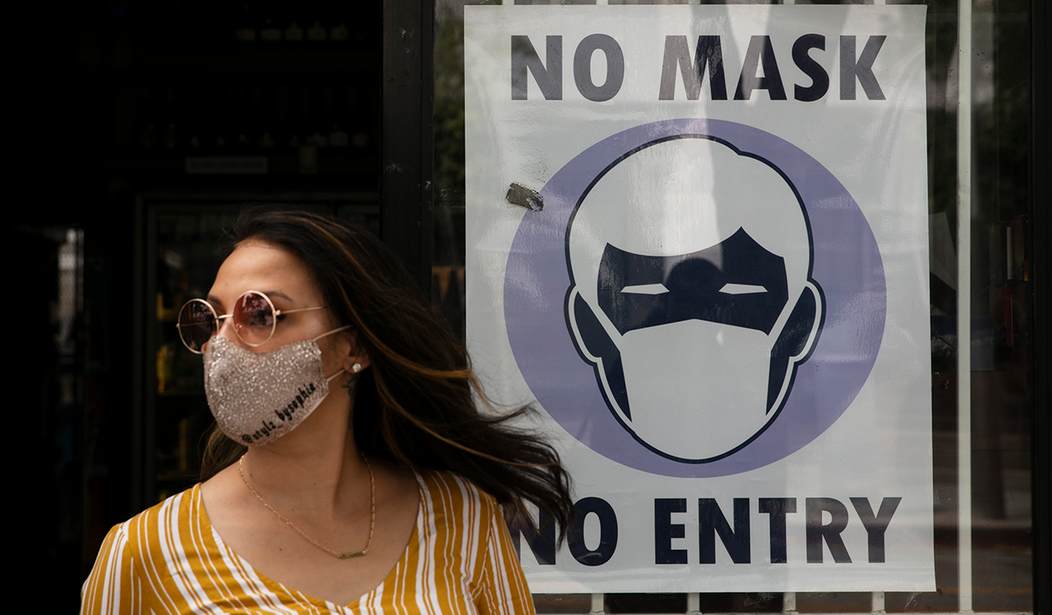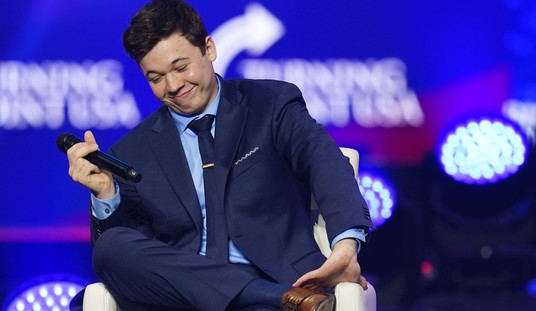Gun control advocates love to suggest that the only thing we need to do in order to erase violent crime from society is to make it illegal to own or carry one, and they’ve spent a lot of time and energy over the past few years trying to convince companies like Starbucks and Subway to ban the carrying of firearms in their stores. Generally what happens is the company “requests” that customers not carry, but there’s no actual sanction if a gun owner chooses not to honor that request.
The reason why these corporations end up with policies that don’t actually ban guns but allow gun control groups to pretend that they do is simple; they get to virtue signal on gun control while also being practical. Telling people not to bring a gun into a store is easy. Trying to escort them off the property or bringing charges against someone who does so, on the other hand, is difficult and messy.
We’re seeing the same mentality at work when it comes to mask mandates. It’s a pretty simple thing to ask customers to wear a mask before they enter your establishment. Figuring out what to do if they don’t, on the other hand, gets complicated pretty quickly.
Walmart has told employees that they should not prevent a customer from entering the store if they refuse to wear a mask. Walgreens said that “for the safety of our team members” the company would not bar customers without masks from its stores. Lowes also said it would “not ask our associates to put their safety at risk by confronting customers about wearing masks.”
Given the bad behavior from folks on both sides of the Great Mask Debate, I don’t blame the companies for taking a hands-off approach to enforcement of their mask policies. The New York Times, on the other hand, has found a few individuals who believe these companies need to be taking a tougher stand.
Toni Vitanza has shopped regularly for her husband’s medication at a Walgreens near their home in Clemson, S.C., but has transferred his prescriptions to another retailer after observing shoppers without masks and employees saying that their managers expressly told them not to do anything about it.
“My feeling is, if you cannot say something as simple as, ‘You have to wear a mask in the store,’ you shouldn’t be working in a store,” she said. “I refuse to believe that every person who gets angry about having to wear a mask is capable of committing murder.”A retired flight attendant, Ms. Vitanza said that she regularly had to ask passengers to do things they didn’t want to do — and on a few occasions she had to have some of them removed from the plane. She often used humor to defuse a situation. “But maybe with 150,000 people dead, we are past humor,” she said.
We’re without humor, and we’re increasingly without social graces too. Longtime readers and viewers/listeners of Bearing Arms’ Cam & Co know that my wife was diagnosed with lung cancer four years ago. She has a compromised immune system thanks to her chemotherapy, and as a result, we’ve been pretty strict about keeping her close to home with the exception of visits to the doctor. I’ve done all the grocery shopping in my house since late February, and I’ve worn a mask every single time. I’ve also never said a word to anyone I run across who’s not wearing a mask, nor would I. Why? Because it’s not worth it.
I’m not going to change their mind with a brief encounter in the produce section. Frankly, I’m probably going to end up breathing more of their air by trying to have a conversation than by simply walking by. More than that though, I’m just not really hardwired to be a scold. Do your thing, just don’t be an ass about it. I wear a mask for the same reason I carry a gun; I know it doesn’t guarantee my personal safety, but I believe it increases my odds. If you disagree, that’s your right, or at least it should be.
The Times spoke to college student and summer Walmart worker Christopher Vanderpool, who earns $11-an hour to stand outside of a Fayetteville, North Carolina location and ask customers to put on a mask before they walk in the store. According to him, most folks comply, but nothing happens if a customer refuses to do so, and Vanderpoool wants that to change.
Mr. Vanderpool said Walmart should hire security guards to enforce the mask rule and protect employees from contracting the virus. “They should be able to say if you don’t have a mask you cannot come into our store,’’ said Mr. Vanderpool, who is enrolled at Brown University in the fall.
Now it’s not enough to ask customers to wear a mask, as the former flight attendent quoted above would like to see. No, now companies need to hire bouncers to keep out unmasked customers. Presumably they’d also need more security stationed inside the store to rush anyone who might take their mask off once they’re through the door, right?
Of course if any security actually did lay a hand on an unmasked customer, you know there’d be a lawsuit filed right away. In fact, a customer likely wouldn’t even need to be manhandled to accuse a corporation like WalMart of wrongdoing.
Legal experts say retailers could run into issues of discrimination if they start asking detailed questions about why someone declines to wear a mask.
“Retailers don’t want to be in the business of interviewing everyone who comes in the door,” said Natalie Sanders, a lawyer at Brooks Pierce, a North Carolina law firm that is advising companies on mask policies. “Retailers are making difficult decisions and doing the best they can. They have to make a judgment call.”
If these companies truly tried to enforce a mask mandate or a gun-free zone, every retail establishment in America would look like a TSA security line at the airport. Maybe we could even have a government agency handle security! We could call it the Retail Security Administration, and you’d have to empty your pockets and go through a metal detector before you were allowed entry into your local Walmart or Lowe’s. The pro-mandate crowd would love that, but not nearly as much as the CEOs of corporations like DoorDash and Amazon, which would surely take advantage of the large numbers of Americans who’d refuse to shop under those circumstances.
Instead of an enforced mandate, these companies will inevitably go the request-route instead, and for good reason. Ultimately, the government or private actors attempting to force us to do the right thing is simply going to cause more problems than it solves.









